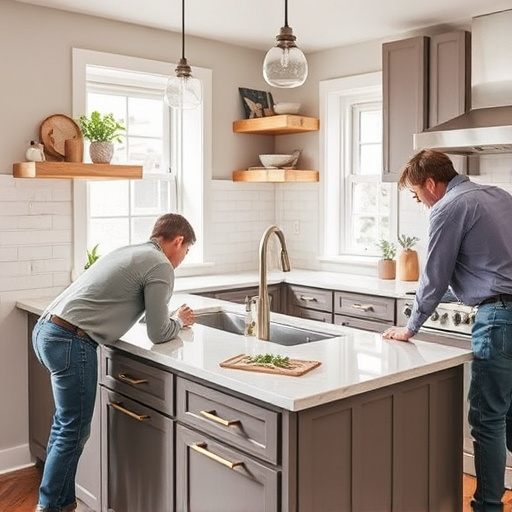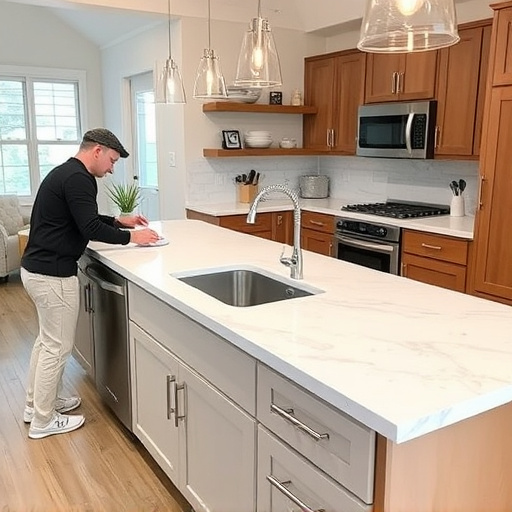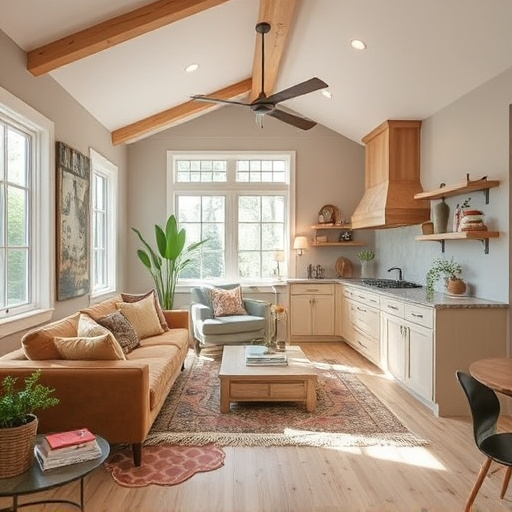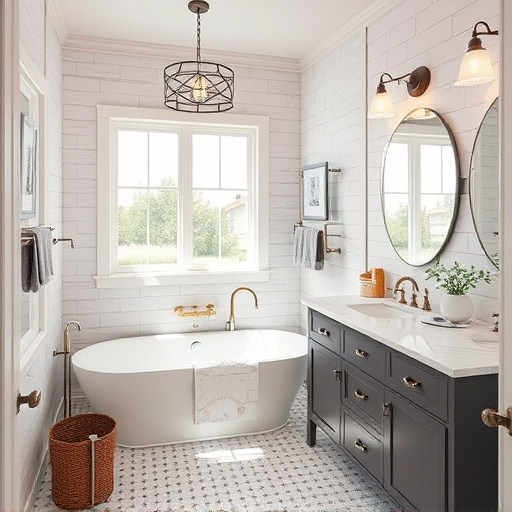Before starting any home renovation project, home renovators must conduct a thorough assessment to anticipate challenges like structural issues, local building codes, weather conditions, and hidden problems. This involves researching property history, consulting professionals, and strategic planning for layout design and material selection. By identifying potential risks early, including unforeseen expenses and custom design choices, home renovators can manage costs effectively and ensure a smoother renovation process focused on transforming their space.
As a home renovator, embracing unexpected challenges is an inevitable part of the journey. This article equips you with essential tools to navigate these hurdles smoothly. From Assessing and Planning for Unforeseen Obstacles to cultivating adaptability and implementing creative solutions for budget and time constraints, every step offers practical advice. Discover how to transform potential setbacks into manageable situations, ensuring your renovation project stays on track and meets your expectations.
- Assessing and Planning for Unforeseen Obstacles
- – Identifying potential challenges before starting the renovation project
- – Creating a detailed plan to mitigate risks and unexpected costs
Assessing and Planning for Unforeseen Obstacles

Before breaking ground on any home renovation project, it’s crucial for renovators to spend time assessing potential unforeseen challenges unique to their specific property and scope of work. This involves thoroughly examining the existing structure, understanding local building codes and regulations, and factoring in unexpected weather conditions or hidden structural issues that could arise during demolition or construction. A comprehensive pre-project plan should account for these variables by including contingency funds for repairs or design adjustments and prioritizing safety measures to mitigate risks.
Effective planning also requires homeowners to thoughtfully consider the impact of residential renovations, such as home additions or kitchen and bath remodels, on their daily lives. Closing off parts of the house or managing construction noise can significantly disrupt routines. By proactively addressing these disruptions in advance, responsible home renovators ensure a smoother transition throughout the transformation process.
– Identifying potential challenges before starting the renovation project

Before tackling any home renovation project, it’s crucial for every home renovator to anticipate potential challenges. This proactive approach can save time, money, and avoid unnecessary stress. A kitchen remodel or even a kitchen and bath upgrade often presents unique obstacles—from unexpected structural issues to changes in electrical wiring. Therefore, thorough research and planning are paramount. Home renovators should study their property’s history, inspect existing structures, and consult with professionals to identify potential problems.
Additionally, considering the overall scope of the renovation project, from layout design to material selection, allows for better preparation. Customized home renovations require a keen eye for detail and adaptability. By envisioning possible challenges beforehand, whether it’s navigating labyrinthine spaces or managing budget constraints, home renovators can develop strategic solutions that ensure a smoother transition during the renovation process.
– Creating a detailed plan to mitigate risks and unexpected costs

Before starting any home renovation project, a thorough plan is crucial to navigate potential challenges and unexpected expenses. As a seasoned home renovator, creating a detailed roadmap is your first step towards success. Identify possible risks early on—from structural issues uncovered during demolition to unforeseen material costs—and factor these into your budget. A well-thought-out plan should incorporate buffer funds for custom work or unique design choices that may arise, ensuring you’re prepared for any twists and turns the project takes.
For instance, if you’re tackling bathroom renovations, consider the various options for customized work available in terms of fixtures, tiles, and layouts. This level of detail not only helps manage costs but also ensures a smoother process, allowing you to focus on transforming your space rather than dealing with unexpected challenges along the way.
For any successful home renovation, being prepared for unforeseen challenges is key. By proactively identifying potential obstacles and implementing a well-structured plan, home renovators can effectively manage risks and unexpected costs. This proactive approach ensures a smoother, more satisfying renovation experience. As you embark on your next project, remember the power of thorough assessment, detailed planning, and adaptability – essential skills for every skilled home renovator.














